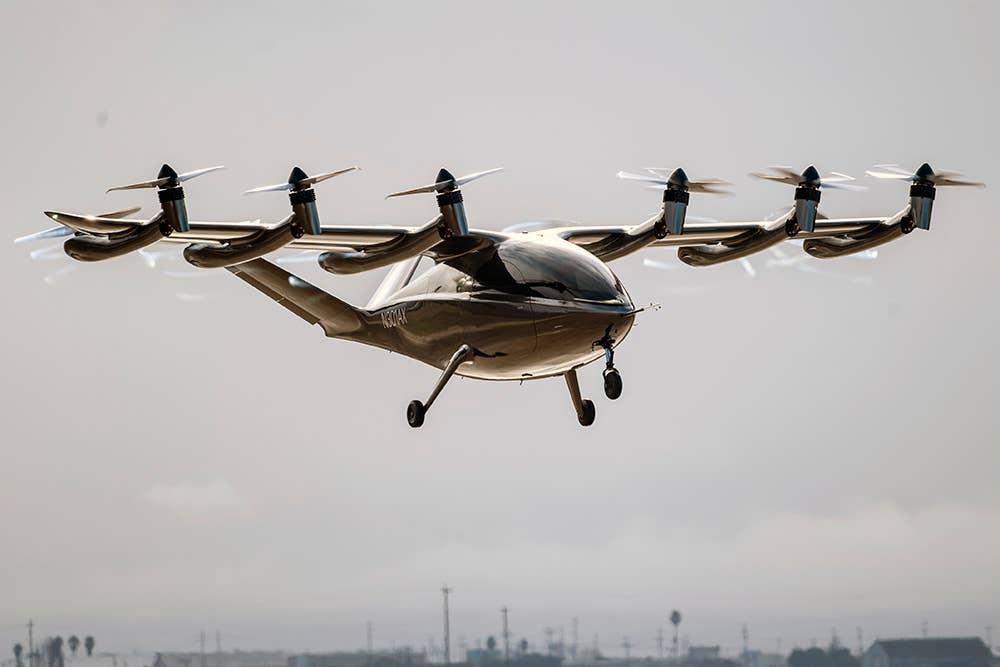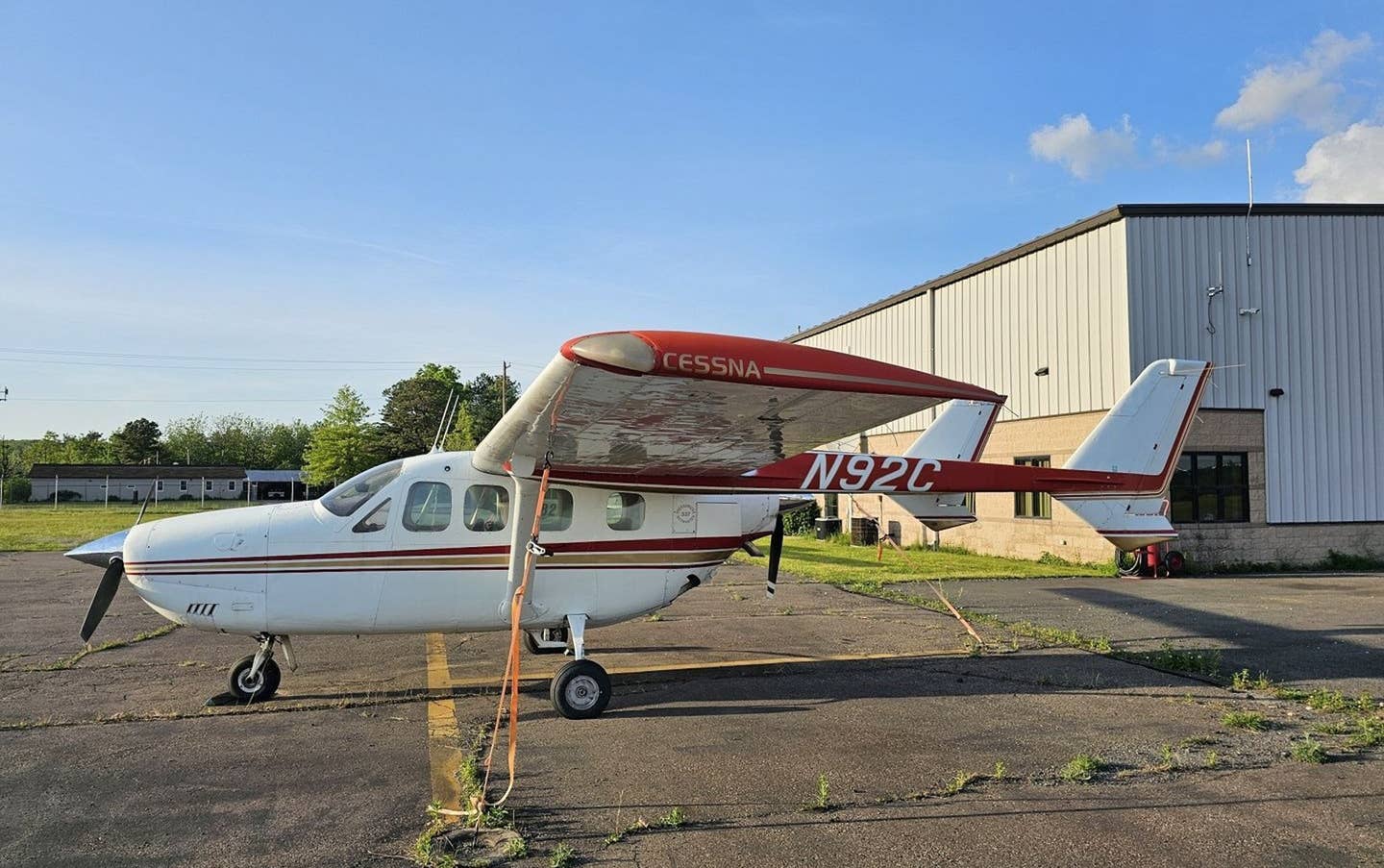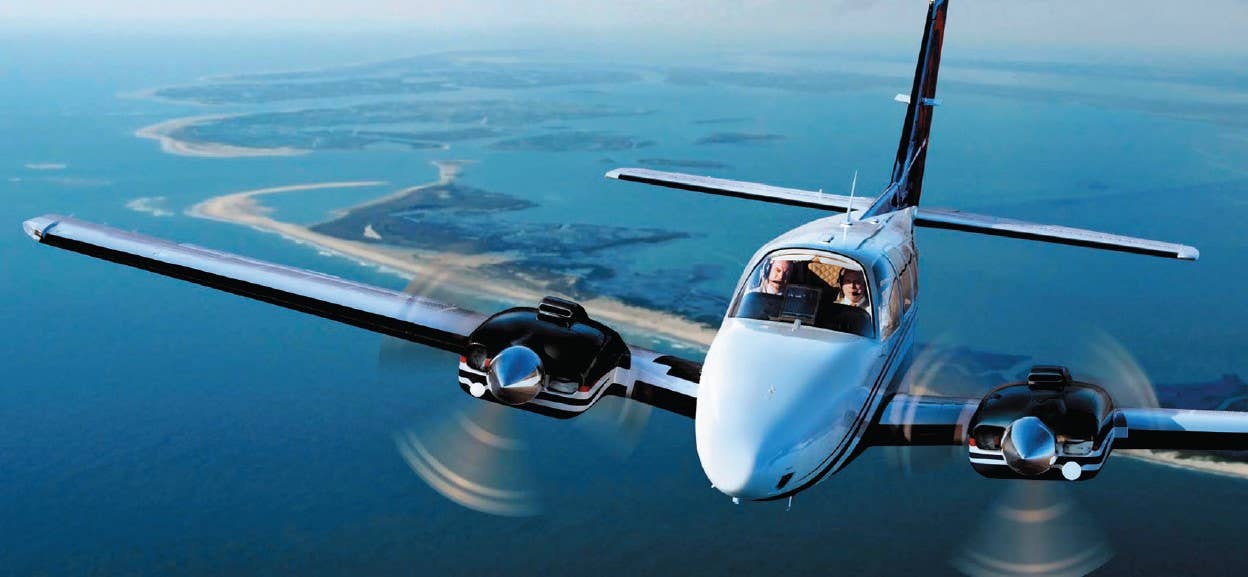Archer Aviation’s Air Taxi Prototype Completes First Hover Test
The aircraft—dubbed Maker—flew at Archer’s California testing facility on December 16 after months of development and preparation.

Archer Aviation’s autonomous, two-seater demonstrator aircraft completed its first hover test on December 16, according to the California-based company. [Courtesy: Archer Aviation]
Archer Aviation (NYSE:ACHR) announced Monday it’s the latest electric vertical takeoff and landing (eVTOL) air taxi manufacturer to successfully get a prototype aircraft off the ground.
The aircraft—dubbed Maker—flew at Archer’s California testing facility on December 16 after months of development and preparation.
Archer offered few details of the flight, saying only that the aircraft climbed off the ground and hovered in place before returning to the ground safely, according to a press release.
“Today is a milestone for both Archer and the future of travel,” said Archer co-founder and co-CEO Brett Adcock in a statement. “I'm extremely proud of this exceptional team.”
Adam Goldstein, Archer co-founder and co-CEO, said the company started with a mission to develop “both an aircraft and an [urban air mobility] ecosystem that could scale and change the face of intra-city travel.” Archer now leaps to the forefront of the eVTOL movement, which aims to develop environmentally friendly passenger aircraft that can make quick hops over traffic-congested urban areas.
“With our first hover flight now completed, we’re one major step closer to that goal and have proven that Archer can work at a fast pace without sacrificing safety or quality,” Goldstein said.
In fact, Archer has already demonstrated it can move forward at a fairly fast pace. The Palo Alto-based company has followed a remarkably fast timeline from publicly unveiling Maker’s design concept to achieving first hover flight in only six months.
“Our team stands ready to continue that pace as we work toward launching an aerial ridesharing service in late 2024,” Goldstein said.
The sky is calling. pic.twitter.com/gYDHLQ7wZK
— Archer (@ArcherAviation) December 14, 2021
Full Circle Moment
This month’s anniversary of the Wright brothers’ first powered flight was not lost on the moment at Archer. Before Maker’s inaugural flight, the company’s head of certification, Eric Wright, a descendant of Orville and Wilbur, placed a historic piece of the Wright Flyer inside the Archer aircraft to mark the moment.
Maker, powered by an array of lithium-ion batteries, is designed to cruise at 130 knots with a range of 60 statute miles. Noise level: 45 decibels at 2,000 feet agl. Maker features a V-tail empennage and a 12-tilt-6 configuration that includes six propellers to create thrust during horizontal flight.
What’s Next
Moving forward into 2022, Archer said it plans to expand its testing program to include “hover envelope expansion, advancing Maker’s design capabilities and reaching higher altitudes.”
After that, engineers are expected to test the aircraft during the very important in-flight transition from hover to forward flight.
As Maker continues to undergo flight testing, Archer is expected to unveil its four-seat production prototype later next year.
Welcome to the Club
Archer now joins the ranks of OEMs that have successfully flown eVTOL test aircraft, including Joby Aviation, Lilium, Vertical Aerospace, Volocopter, Wisk Aero, and others.
It’s all part of an emerging aviation sector aimed at providing short, zero-emission flights above traffic gridlocked cities to multiple destinations, including airports.
Word of the important milestone comes as Archer faces stiff competition from a multitude of eVTOL companies, including Uber-backed Joby Aviation, which has been conducting its flight-test program since 2018.
Both Joby and Archer plan to manufacture eVTOL aircraft as well as operate air taxi services. Industry analysts say this kind of vertically integrated business model will likely be expensive, making fundraising all the more critical to success.
This year, both companies became publicly traded stocks and raised hundreds of millions of dollars by merging with special purpose acquisition companies (SPACs).
Possible Service in Los Angeles and Miami
Pending FAA type certification of its production aircraft, Archer has committed to Miami as its flagship launch market by 2024.
Goldstein told FLYING in October that the Los Angeles area could also be a prime location for Archer’s air taxi service.
“There are 50 million daily trips in L.A. on the ground, of which five million take longer than an hour to drive,” Goldstein said. “L.A. meets a lot of criteria that makes it super attractive.”
Information provided to Joby investors indicated plans for more than 300 aircraft and a projected market opportunity of more than $500 million per year in Los Angeles alone.
Joby, which purchased the company from Uber Elevate in 2020, intends to piggyback off of Uber’s mobile rideshare app, in hopes of quickly engaging with potential passengers.
Partnering with Traditional Airlines
In February, Archer and United Airlines announced a partnership that includes a provisional deal for United to buy $1 billion in eVTOL aircraft and an option for more. Archer has said it intends to work with United as a strategic partner, helping with certification, maintenance, pilot training, and market launches.
“Today is a milestone for both Archer and the future of travel.”
Archer co-founder and co-CEO Brett Adcock in a statement
United CEO Scott Kirby has suggested that Archer could be part of a seamless transportation network for United passengers en route to and from its hub airports.
“This is an opportunity for [United customers] … to get to the airport faster, safer,” said Kirby in an Archer promotional video. “The travel journey isn’t just once you get on the airplane. It’s from the time you leave the airport until you get to your ultimate destination—making that easier, making that faster, more convenient, more efficient for customers.”
In fact, United has been expanding its ties to electric aviation through partnerships with Heart Aerospace and ZeroAvia.
Aircraft lessors and other eVTOL manufacturers, including Germany’s Lilium and Volocopter, have sealed deals with major airline carriers such as Azul, Gol, and Japan Air Lines. Vertical Aerospace cut a pre-order deal with American Airlines in June worth a potential $1 billion to purchase up to 250 eVTOLs with an option for 100 more.
Infrastructure and Passenger Fares
Air taxis will need places where passengers can board and deplane, and where personnel can recharge or replace batteries and for general maintenance.
Both Joby and Archer have partnered with Reef, the largest parking operator in the U.S., to retrofit existing parking garage rooftops as air taxi vertiports.
However, developing the infrastructure required to create a viable air taxi network will be expensive.
One estimate by global management and consulting firm McKinsey & Company projected even the smallest vertiports could cost from $200,000 to $400,000 to build and even more to operate.
How much will it cost to book an air taxi? Archer has said in investor materials that air taxi fares could be set at $3.30 per passenger/mile. According to company executives, investor materials, and a NASA study, each eVTOL passenger might pay from $2.25 per mile to as much as $11 per mile, depending on several factors.
Former Apple, Gulfstream Engineers Join Archer
Now that Archer is flying, the work becomes that much more intense, as development continues on the aircraft’s flight control software, batteries, propulsion, and other systems.
Earlier this month, Archer announced it hired Michael Schwekutsch as its new senior vice president of engineering and propulsion-/HV-/battery-systems. Schwekutsch, who holds several automotive patents, came to Archer from Apple where he was senior director of engineering. Before that, he served a similar role at Tesla.
He joins another recent hire, Sergio Ferreira, who will lead development of the eVTOL’s fly-by-wire flight control system.
Like Schwekutsch, Ferreira comes to Archer from a well-known brand. He spent a decade at Georgia-based Gulfstream Aerospace, where he oversaw development, integration, validation, and certification for flight control computers on Gulfstream’s G400, G500, and G600 fly-by-wire flight control systems.

Subscribe to Our Newsletter
Get the latest FLYING stories delivered directly to your inbox






